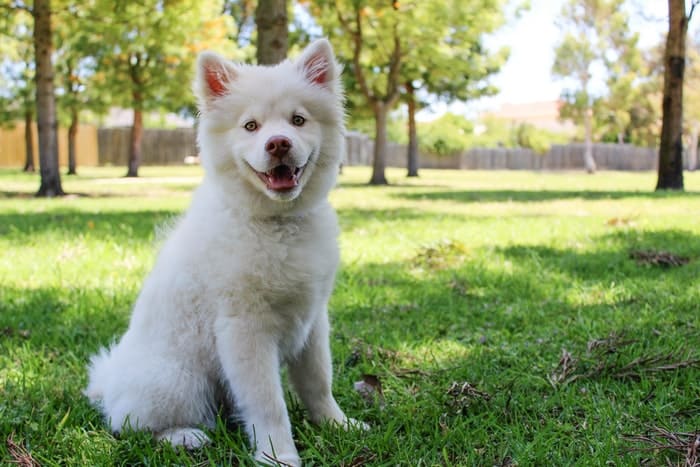Last Updated on September 18, 2022 by ellen
Are you wondering about dog heat stroke symptoms? How do you know if your dog is having a heat stroke? With summer weather only a few short months away, I wanted to discuss an important topic with you. Summertime means beaches, days at the pool, vacations and high temperatures. Unfortunately, it also means that heat stroke or heat exhaustion can be a danger to your pets.
Posts may be sponsored. This post contains affiliate links, which means I will make a commission at no extra cost to you should you click through and make a purchase. As an Amazon Associate I earn from qualifying purchases.

Table of Contents
Dog Heat Stroke Symptoms
Unlike people, dogs can only release heat by panting. Dogs don’t perspire the way we do and all of that fur can be a problem when it comes to cooling down. Here are a few dog heat stroke symptoms that you need to be aware of. Remember, I am not a vet so please always ask your vet if you have any questions rather than relying on this advice.
- Excessive panting or drooling
- Thicker saliva
- Reddened gums and/or tongue
- Less urination
Rapid or irregular heartbeats - Laying on their side without moving
- Vomiting
Prevent Heat Stroke
If you’re wondering how to prevent your dog from having heat stroke, there are several things that you can do when the temperatures start getting higher.
- Make sure there is shade for them to cool down in.
- Provide lots of fresh cool water to drink. An outside pet drinking fountain is a great solution.
- If you’re inside, be sure that there is a fan blowing cool air.
- If your dog is outside, fill a kiddie pool with cool water for them to play in.
- There are dog toys like the Chuck It Hydro Toys and the Doggie Drencher that can help.
- Give them doggie ice cream.
Dog Heat Stroke Recovery
If you think that your dog has heat stroke, it’s important that you contact their vet immediately. You can also rub them with cool (not cold) water to help lower their body temperature. Do not give them ice. This can cause shock and make the process worse.

Ellen runs a small pet sitting business in southern Vermont. She has experience with a variety of small animals, dogs and cats. She has also cared for ducks, chickens and rabbits. Combined, she has over 20 years of experience in pet care and pet sitting.